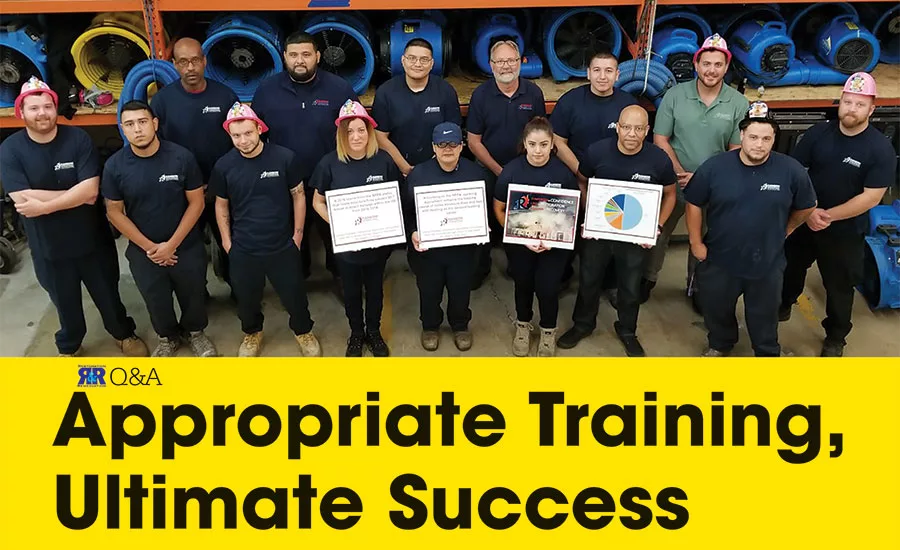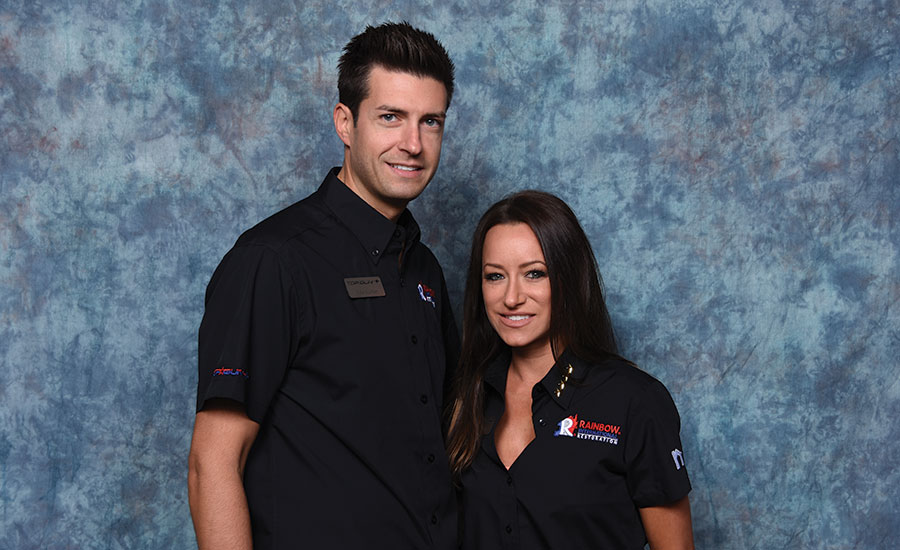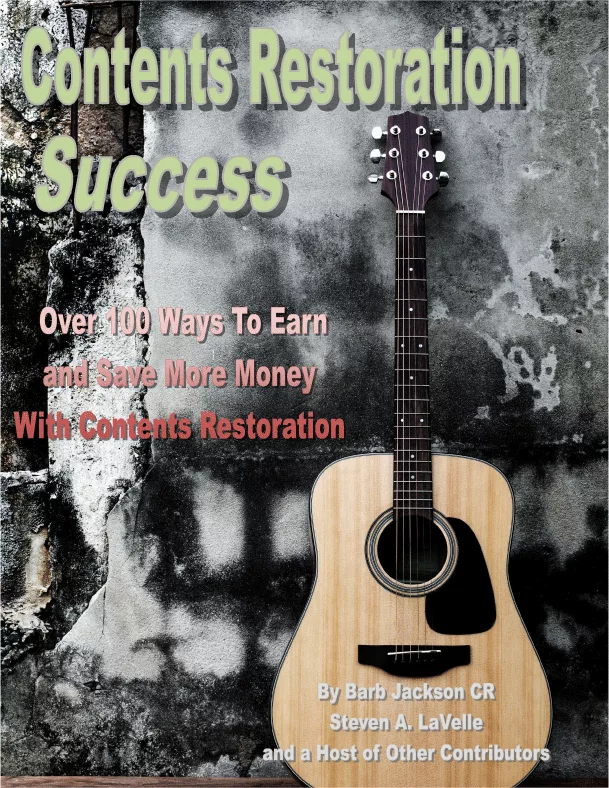R&R Q&A: Appropriate Training, Ultimate Success

Editor’s Note:
It’s no secret training is a critical element to any company’s success. Yet, when work gets busy, training seems to fall to the wayside, and ends up forgotten. This interview with the owner of a successful Rainbow International franchise is a refresh of the importance of training throughout every aspect of a restoration company, and also a reminder that training doesn’t always have to be in-depth, formal, or complicated.
1. Tell us a little bit about yourself and your Rainbow International franchise.
I’ve been in business 11 years. We have 28 full-time employees and 31 employees total. My background is in above-ground swimming pool construction. I did that for four years. In the Midwest, those are popular. I was a salesman when I was young, selling patio furniture and pools. I graduated and went to college and was looking to make some money on the side. At the height of the pool business, we built more than 300 above-ground pools in one summer.
2. Why did you choose Rainbow International over another restoration franchise option?
As I struggled through managing the pool company as a young guy, I received some advice to consider franchising. I discovered at an early age that this industry even existed. I made up my mind rather quickly that I wanted to own a franchise – it was just a matter of which one. Other competitors in the industry were like one another when it came to equipment, but what set Rainbow International apart were the training and the Code of Values. I discussed with my family and then made the decision to join Team Rainbow.
3. Why was the training element so important to you?
Training is paramount if you want to be scalable and grow a company that can run smoothly. That was my struggle in the beginning – you try to do everything yourself until you realize you need to rely on others. And if you’re going to do that, they need to be well-equipped and well-trained. We try to do Institute of Inspection, Cleaning and Restoration Certification (IICRC) classes at our facility each year. We’ve had Jack White, Vice President of Technical Services, Rodney Harris, Director of Technical Services, and Joshua Miller, Director of Technical Training, at our facility doing training.
Training your employees well gives them more pride in their work and makes them feel more engaged, rather than “just a number” in the company. Our one-hour morning speed trainings on specific topics gives them a break from running out the door each morning. It gives them an opportunity to share their opinions and feel valued.
Another aspect of employee buy-in is when they know our company’s vision is to hire from within, they see future opportunity. They don’t see a dead end as a technician. A conversation from our end looks something like, “Hey, you can’t be a restoration technician the rest of your life. You need to move up in the company or move on.” Working here as a technician is a career, but it may not always look like a technician’s role – maybe it’s working as a project manager, an estimator, an office manager, or in sales. We’re a tribe in that aspect. We want to teach people crafts and empower them, as opposed to them seeing new people coming in from the outside. It happens, but it’s very seldom here.
Background on Jack’s House
Rainbow International’s water restoration facility, known as Jack's House, is a 1,200 square-foot training house built inside a 5,000 square-foot warehouse. Jack's House is equipped with its own heating, ventilation and air-conditioning system and a variety of other independent features designed to train multiple restoration scenarios simultaneously. Jack's House is regularly flooded and restored.
Background on Rapid Structural Drying
Rapid structural drying is a forward-thinking approach and solution to water damage that quickly and efficiently restores your property to its original state. Benefits include saving time and money, creating a healthier, safer environment, minimizing replacement costs, reducing stress and focusing on complete structural drying, as opposed to only drying the carpet and carpet padding.
4. Of the Rainbow International training program, what element(s) did you find the most beneficial, and why?
I originally was trained in Jack’s House at the corporate office in Waco, Texas. Now, I guess you can say we bring Waco to Chicago! At Jack’s House, it’s interesting to be in an environment where not only a structure is built within a structure, but we’re taking a hose and flooding it. I wonder how many times they flood that house before they need to replace the materials – especially the drywall and the hardwood floors! Rainbow International was on the cutting edge of training techniques, such as rapid structural drying, which really impressed me.
5. What other training do you use, outside the Rainbow world?
We have our estimators go through Xactimate training. An important part of our training is having technicians who struggle with documentation try their hand at estimating. It’s very interesting watching a technician who has been out in the field for years come in the office and write an estimate. Their perspective changes. They begin to understand the importance of taking good photos, writing accurate scope notes, etc. The lightbulb goes on and they think, “Oh, now I get it.” They realize what they can do better when they’re on the job. We also utilize resources from Jon-Don as well as restoration certifications from the American Council for Accredited Certification (ACAC).

John Gurtler, Owner of Rainbow International of South and West Suburbs (Chicago)
Training brings human nature into the equation. When you’re a child and you want to do something or go somewhere, and your parents say “No,” you’ll naturally ask, “Why?” When they say, “Because we said so,” you’re confused and resentful. Sometimes, slowing down, receiving good training, asking questions and letting your employees ask their questions speeds up productivity. In the restoration industry, we’re often so focused on getting out the door quickly that we lose sight of preparing our people adequately. Sometimes, you have to slow down to speed up.
6. What advice would you give fellow restoration companies/franchise owners that feel their training program is lacking?
Don’t underestimate what your employees are capable of. Don’t underestimate the value that employees see when you take the time to really sit down and talk with them and train them well. It has surprised me over and over again what happens when you give an employee a great opportunity. They take pride in what they do and they excel at it. I wish I would’ve done that sooner.
Looking for a reprint of this article?
From high-res PDFs to custom plaques, order your copy today!





